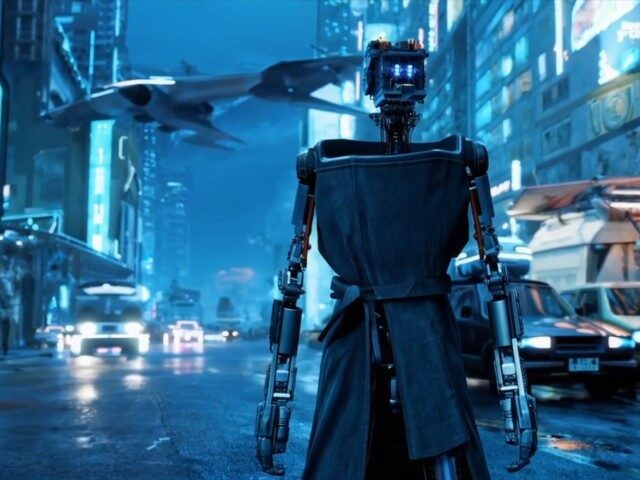A new study has found that 42 percent of movie and TV production workers fear that AI-generated content will “harm people” in their field.
The study — which was conducted by NRG (National Research Group) and first reported by Indiewire — comes amid growing anxiety, especially among blue collar crew members, that artificial intelligence technology will all but eliminate the need for physical production by giving studios the ability to create entire scenes through generative algorithms.
But not everyone in Hollywood is pessimistic.
NRG’s study found that 32 percent movie and TV production workers believes AI will “benefit” them, with the remaining quarter either believing it will have no impact or saying they do not yet know the impact.
The study was published as IATSE and the Teamsters are currently sitting down with studios to negotiate new contracts for the vast majority of Hollywood crew members as well as post-production workers. On the table are a host of issues, including AI.
Hollywood’s rapid adoption of AI comes on the heels of last year’s dual strikes by actors and writers, who walked off the job to protest their compensation tied to digital streaming as well as the threat of AI taking over their professions.
The strikes brought Hollywood to a historic halt, with numerous TV and movie productions being forced to suspend activity for several months at enormous cost to the studios.
When the dust finally settled, SAG-AFTRA claimed it had scored important victories in protecting its actor members against the encroachment of AI. But questions remain about just how significant those victories were, with some dissenters saying they fall short of true protections, giving studios room to work around them.
The Writers Guild of America also trumpeted a supposed victory. Studios must now disclose if any material given to writers has been generated by AI. In addition, studios can’t force writers to use AI, nor can AI receive credit on a TV show or movie.
But again, ambiguities abound. AI applications like ChatGPT are already being used by some writers as a tool in their creative process. And studios are expected to search for legal loopholes that will enable them to capitalize on the technology.
Meanwhile, blue-collar Hollywood workers stand to lose perhaps the most to AI.
Tyler Perry recently canceled plans to construct an $800 million studio expansion in Atlanta, Georgia, after seeing the capabilities of OpenAI’s Sora — a generative text-to-video application that can create entire scenes based on typed prompts.
“I no longer would have to travel to locations. If I wanted to be in the snow in Colorado, it’s text,” he said. “If I wanted to write a scene on the moon, it’s text, and this AI can generate it like nothing.”
Follow David Ng on Twitter @HeyItsDavidNg. Have a tip? Contact me at dng@breitbart.com

COMMENTS
Please let us know if you're having issues with commenting.